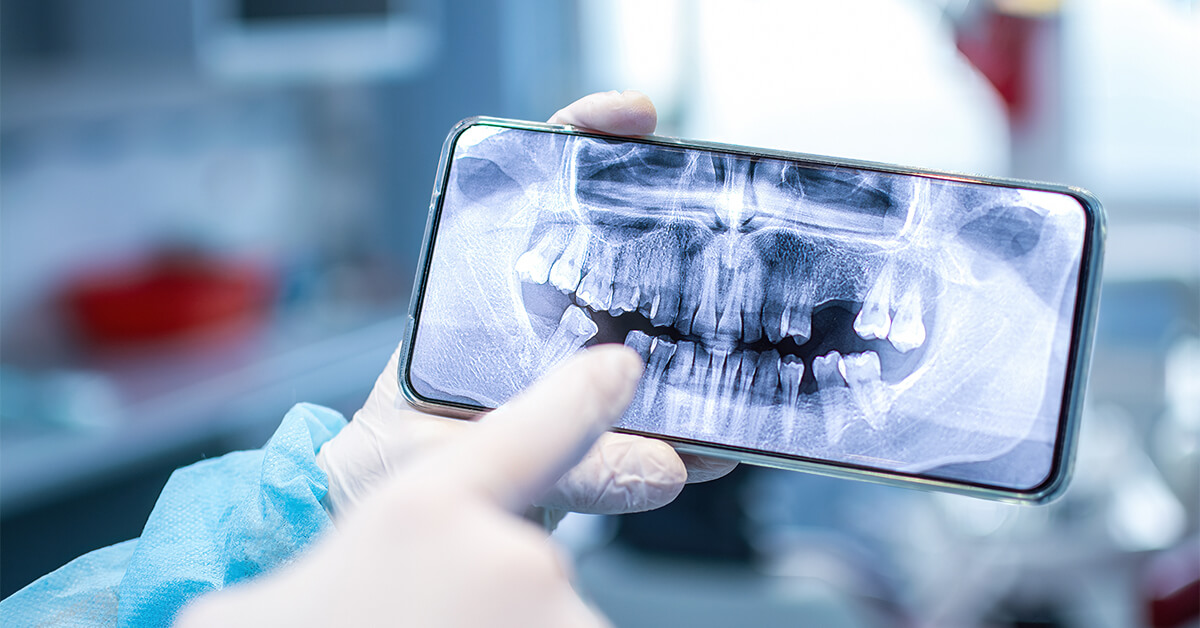January 26, 2023

Overlooked and Underfunded: Dental Care’s Massive Potential to Serve Disadvantaged Populations
Benjamin Franklin famously observed that an ounce of prevention is worth a pound of cure. Nowhere is this aphorism more applicable than in pediatric and adult dental care for disadvantaged populations.
U.S. healthcare has long overlooked the essential role that dental care can play in providing holistic well-being, reducing downstream healthcare costs, enhancing economic productivity, and improving life quality.
In other areas of healthcare, we have seen the economically marginalized, chronically ill and at-risk populations increasingly benefit from innovations in care delivery, care setting, payment models and wraparound social services. Private equity and venture capital investment has helped catalyze provider activity, innovation and growth.
In contrast, investors and providers have generally placed less focus on the dental care of those same populations, despite persistent and widespread need. This neglect has particularly impacted underserved Medicare and Medicaid populations that tend to have higher instances of untreated oral health disease, and often other directly related chronic and acute illnesses and diseases.

Listen to the House Calls Podcast at Key.com, Apple Podcasts, Spotify and Stitcher.
There are multiple reasons why the healthcare ecosystem has not embraced more expansive dental care for underserved populations. Culturally, dental services have never achieved equivalent status with medical services, and dental care’s value as a primary care resource has been ignored. Insufficient Medicare and Medicaid program funding has also impeded access. This funding gap has resulted in more muted provider participation and investor interest.
Those headwinds appear to be shifting. Private equity and venture investors are increasingly funding promising enterprises that create value through patient-centric dental service delivery. These healthcare providers are rewriting the playbook for Medicare/Medicaid markets by providing quality, innovative and streamlined dental care.
With a large addressable market, mission-driven dental businesses have a significant opportunity to make an impact on the lives of patients in need.
Separated at Birth, Inextricably Linked
American medicine professionalized in the 1920s in response to Abraham Flexner’s 1910 report on medical education. Funded by the Carnegie Foundation, the landmark report advanced the Johns Hopkins’ model for medical education, research and care delivery. It raised admission standards, promoted evidenced-based medicine and made medical licensure more stringent. In its wake, over half of the nation’s medical schools closed and the number of medical students fell precipitously.
A second Carnegie Foundation report asserted that oral health and physical health were inseparable and recommended that dentistry be integrated into the standard medical curriculum. Dental practitioners rejected the idea, and that artificial divide often persists to this day. [1]
We now know that poor oral health is a contributing factor in multiple chronic conditions. These include cardiovascular and respiratory diseases; diabetes; adverse pregnancy outcomes; pneumonia; Alzheimer’s; rheumatoid arthritis; and oral cancer. [2, 3] According to a Harvard study, people with gum disease are two to three times more likely to contract heart disease. [4]
With early detection, dental conditions are highly treatable. Regular, proactive preventive dental services care pays dividends beyond healthier teeth and gums. A recent Mayo study examined the connection between regular exams, cleaning and treatment on the overall care costs of at-risk patients with diabetes and coronary artery disease. Their research found the following:
Preventive dental care was strongly associated with significant savings for patients with either condition, and even greater for patients with both. A healthier mouth was associated with fewer hospitalizations. This saves money, but more importantly, patients remain healthier. [5]
Lack of dental care creates significant socioeconomic barriers and diminishes quality of life. Bad teeth can make it difficult to find a job, secure social acceptance and even develop relationships. [6]
Today, the U.S. dental market is $162.1 billion. [7] Yet, 77 million American adults lack dental insurance, three times the number that lack health insurance. [8] That percentage is higher for the elderly, poor, disabled, unemployed, veterans and racial minorities. 93% of people living in poverty have unmet dental needs; they spend 10 times more on dental services than higher income populations. [9]
The immense gap between service level and demand is a black mark on the country but also spells opportunity for first movers and innovators.
Pediatric Dental Care: The Right Start Changes Everything
 Tooth decay is the most common chronic disease among U.S. children, five times as prevalent as asthma. Pediatric dental care is one of the nation’s greatest unmet health needs, especially in low-income, minority and rural communities. [10]
Tooth decay is the most common chronic disease among U.S. children, five times as prevalent as asthma. Pediatric dental care is one of the nation’s greatest unmet health needs, especially in low-income, minority and rural communities. [10]
Only 50% of children on Medicaid have yearly dental appointments, and 20% have untreated dental decay. [11] This neglect can have a significant and growing impact on a child’s health, emotional well-being and level of social acceptance.
Governments pay for dental services for children under 21 who lack commercial coverage. Though reimbursement rates are lower than for commercial plans, almost half of all children in the U.S. are insured through Medicaid or the Children’s Health Insurance Program (CHIP). [12]
For this reason, most pediatric dental businesses have a high component of government-insured patients. The size of the market, the volume of demand and the stability of funding have made this sector more attractive to dental services organizations (DSOs), larger dental practices and private equity investors than the low-income adult sector.
California-based CHOICE Healthcare Services is a specialty dental services organization (DSO) focused on children’s dental services, operating in 4 western states. Connecticut-based Amulet Capital Partners acquired CHOICE in 2018.
Amulet’s investment thesis in acquiring CHOICE centers on expanding the Company’s capacity to deliver pediatric dental services to underserved populations with inadequate access to quality oral health care. This aligns with the Company’s corporate mission of providing high quality, children-friendly dental care to patients with all types of insurance.
Amulet has expanded its CHOICE offering into numerous other geographies both organically and through practice acquisitions in Nevada, Arizona and New Mexico. Carl Zimmerman, Principal at Amulet, explains the basis for that strategy.
When you’re targeting underserved pediatric populations, the growth opportunity is to provide access to care where few, if any, other providers are practicing in the market. So, this hasn’t been a typical roll-up opportunity. We’ve invested significantly behind de novo footprint and service line expansion and have gotten fairly sophisticated at identifying supply-demand imbalances and ramping up in those locations.
CHOICE is following Clayton Christensen’s advice of finding opportunities for disruptive innovation by competing against nonconsumption. [13] They’re providing services in markets traditional DSOs have overlooked.
Founded in 2011, Houston-based Blue Cloud Pediatric Surgery Centers also competes against nonconsumption in high Medicaid and special-needs populations. They provide anesthesia services for pediatric dental surgeries. TPG’s The Rise Fund acquired the company in 2022. [14] It now operates dental and oral-surgery ambulatory surgery centers in 8 states.
Blue Cloud’s mission is to increase access, improve safety and reduce the costs of dental surgery for children with Medicaid insurance. It began in Texas where few dentists offered hospital-quality anesthesia services despite relatively robust Medicaid coverage. Blue Cloud’s CEO Devin Larsen explains the importance of the company’s services: “We represent a substantial savings compared to hospitals, while still providing the key patient safety functions of an accredited facility with pediatric-trained anesthesia and nursing teams.”
Instead of forcing Medicaid to fund dental surgeries in higher-cost hospital facilities, Blue Cloud provides these services in licensed ambulatory facilities with trained nurses, life-safety equipment, emergency drills and hospital transfer agreements. In doing so, Blue Cloud provides a convenient, high-end consumer experience and lowers Medicaid’s costs. Larsen observes:
We’re getting children off long hospital wait lists and into surgery centers at three to five times less than what the hospital would bill Medicaid. One of the best parts of my job is meeting with a Medicaid official and showing them how we’re handling the access to care issue and the quality issue while also saving them money they can spend on other problems.
The Adult Dental Market: Demand in Search of Supply
 In comparison to pediatric populations, the adult Medicaid and Medicare populations are not as well served. A large percentage of seniors lose dental coverage upon retirement as they migrate into traditional Medicare. Seeing opportunity, 86% of Medicare Advantage (MA) [15] plans now cover dental care services for their members and several MA-focused primary care companies such as ChenMed, Oak Street, and Cano Health offer dental services in or near their primary care clinics. Offering this benefit has helped turbocharge growth in MA enrollment.
In comparison to pediatric populations, the adult Medicaid and Medicare populations are not as well served. A large percentage of seniors lose dental coverage upon retirement as they migrate into traditional Medicare. Seeing opportunity, 86% of Medicare Advantage (MA) [15] plans now cover dental care services for their members and several MA-focused primary care companies such as ChenMed, Oak Street, and Cano Health offer dental services in or near their primary care clinics. Offering this benefit has helped turbocharge growth in MA enrollment.
In state Medicaid programs, adult services are optional. All states currently offer dental services for pregnant women and 39 states currently offer emergency dental services. [16] However, only 17 states provide extensive dental coverage. [17] Lack of access to dental care services translates into higher levels of chronic disease which require more complex interventions.
Nevertheless, innovators find ways to overcome such challenges. Enable Dental is making inroads with underserved populations (geriatric patients, special needs patients and individuals with disabilities) with Medicaid and Medicare insurance.
Founded in 2017 as a DSO, Enable recently closed its Series A2 funding round led by CareQuest Innovation Partners with $8.4 million in equity and debt. The company has operations in eight states including Texas, California, Colorado, Washington and Florida. CEO Paul Langley is ambitious: “Our vision is to be the largest at-home dental company in the U.S. We’re building that market as we grow.”
To reach high-need customers, Enable provides portable, flexible pop-up services to independent and assisted-living facilities (IL/AL), skilled nursing facilities, mental health centers, group homes, hospitals and homes. Enable provides all necessary supplies and equipment, including reclining dental chairs and portable X-ray machines.
This approach lowers delivery costs and facilitates easier care access, making profitability possible. Enable also has centralized patient coordination, scheduling, billing, marketing and administration to further reduce costs and clinician burden. They coordinate care with primary care physicians, facility nurses, organizational administration and family members.
With a venture mindset, Enable began serving PACE programs during COVID. High-acuity Medicare and Medicaid populations could not leave assisted-living facilities to receive dental services. This provides access to volumes of new customers. “We leaned into that as an opportunity to scale the business,” CEO Langley observed. “We knew we had a first-mover advantage. There are really no providers better positioned than we are to provide the necessary care.”
Payment and contracting are complex. Historically, Enable has operated under fee-for-service arrangements with large clients. Now, it contracts directly with health plans and social service agencies on a flat fee, per-member-per-month basis. This approach aligns incentives to keep costs low and predictable for the plan while incentivizing the company to drive utilization of benefits. As value-based payment models for dental care coverage expand, Enable will be ready.
In the meantime, Enable will continue to focus on organic growth, using technology to reduce the cost of services and build its density of patients. As it gains proficiency in underserved populations, the company plans to expand into commercial dental-care markets and win by providing convenient, high-volume, low-cost, high-quality services through its disruptive business model.
On the payor front, LIBERTY Dental Plan, a dental benefits administrator, is also seeking to steer more funding into preventive care for its members and providers. Founded in 2001, LIBERTY Dental has over 6 million Medicaid, Medicare and Commercial/ASO members across the country. The company helps to manage spend through preventive oral care, better education, and other approaches to alleviate socioeconomic barriers to dental care.
Specifically, LIBERTY has seen significant growth in its Medicare Advantage business as more adults in Medicare increasingly choose dental coverage in their MA plans. The company is also experimenting with its own payment reform, a value-based program that rewards providers for practicing preventive care that leads to better outcomes and encourages patient engagement. LIBERTY collaborated with the University of San Francisco to develop an evidence-based program that creates a dental-risk profile for every individual. In this way, health status can be tracked over time and improvements in outcomes can be measured, paving the way for more value-based care arrangements.
Dental-benefits administrators like LIBERTY Dental have the potential to incentivize providers by introducing value-based care initiatives.
States Addressing Unmet Need
In fee-for-service (FFS) medicine, almost every access, quality or cost problem has its roots in payment. American medicine does not change the way it delivers care until society changes the way it pays for care. As the relative advantages of pediatric Medicaid dental shows, money counts.
Recognizing this, a growing number of states are increasing Medicaid dental coverage and payment rates to combat the lack of access and lower total healthcare costs. At least 14 have recently passed laws to improve adult Medicaid dental payments, access and/or delivery. [18]
For example, starting in January 2023, Tennessee will offer dental care to 600,000 adults on Medicaid at an aggregate cost of $75 million a year. Its rationale is understandable. During 2019, the state spent more than $10 million on emergency dental care in hospitals. Increasing access will require more dentists. Tennessee plans to devote $100 million to expand dental schools and offer tuition reimbursement to graduates who work in high-need areas. [19]
As Tennessee illustrates, increasing payment for dental care services improves access for Medicaid populations. A 2021 study by the American Dental Association illustrated this truism. Medicaid dental reform in Virginia, initiated in 2006, increased payments and shifted administration to managed care organizations. This resulted in significant increases in provider participation in the state’s Medicaid programs. [20]
As LIBERTY Dental founder and CEO Dr. Amir Neshat observes: “I think the importance and cost of oral health and dental health within the adult population has prompted more states to look deeper at changes to reimbursement and administration.”
Conclusion: Creating Societal ROI
There is a massive need for dental care in the U.S., particularly among underserved populations. Lack of access to care has significant downstream costs and diminishes health and quality of life.
To better manage their Medicaid expenditures, state governments are expanding Medicaid dental coverage. In response, PE- and Venture-backed DSOs are investing in underserved markets to expand care access and reduce downstream medical expenditures through improved oral health.
Higher payment rates make pediatric services the easiest markets to penetrate. Increasingly, innovative dental care companies are also serving the adult market with business models that improve access and reduce costs through innovations such as at-home care, tele-dentistry, mobile dentistry and pop-up clinics.
Investing in dental care services for the underserved has an extremely high societal return relative to many other government-funded health programs. It not only reduces overall care costs but also improves individual and community well-being and productivity. Everybody wins.
Sources
- https://journalofethics.ama-assn.org/article/why-dont-medicare-and-medicaid-cover-dental-health-services/2022-01
- https://www.cdc.gov/oralhealth/conditions/index.html
- https://www.mayoclinic.org/healthy-lifestyle/adult-health/in-depth/dental/art-20047475
- https://www.health.harvard.edu/heart-health/gum-disease-and-heart-disease-the-common-thread
- https://newsnetwork.mayoclinic.org/discussion/a-trip-to-the-dentist-saves-money-reduces-likelihood-of-hospitalization-for-people-with-diabetes-or-coronary-artery-disease/
- https://www.kff.org/report-section/improving-access-to-oral-health-care-for-adults-in-medicaid-key-themes-from-a-policy-roundtable-report/
- https://www.ibisworld.com/industry-statistics/market-size/dentists-united-states/
- https://www.businesswire.com/news/home/20220622005664/en/New-Report-77-Million-Adults-Do-Not-Have-Dental-Insurance
- https://www.carequest.org/topics/health-equity
- https://www.pewtrusts.org/en/research-and-analysis/articles/2016/02/16/childrens-dental-health-disparities
- https://www.dentistrytoday.
com/a-lack-of-awareness- impacts-the-care-of-medicaid- dental-patients/ - https://ccf.georgetown.edu/2022/02/17/millions-of-children-may-lose-medicaid-what-can-be-done-to-help-prevent-them-from-becoming-uninsured
- https://www.christenseninstitute.org/blog/non-consumption-is-your-fiercest-competition-and-its-winning/
- https://therisefund.com/news/rise-fund-acquires-blue-cloud-pediatric-surgery-centers
- https://www.milliman.com/en/insight/dental-coverage-in-medicare-advantage-plans-nationwide-market-landscape-2022-update
- https://www.nashp.org/state-medicaid-coverage-of-dental-services-for-general-adult-and-pregnant-populations/
- https://www.healthinsurance.org/faqs/to-what-degree-does-medicaid-provide-adult-dental-coverage/
- https://www.ada.org/publications/ada-news/2022/june/ada-highlights-state-advocacy-wins-to-improve-dental-medicaid
- https://www.marketplace.org/2022/02/28/expanding-medicaid-dental-coverage-means-finding-more-dentists-to-handle-the-work/
- https://www.aapd.org/globalassets/brickhouse-impact-of-medicaid-reform-on-dsos-jada-oct-21.pdf
Disclaimer: The information contained in this report was obtained from various sources, including third parties, that we believe to be reliable, but neither we nor such third parties guarantee its accuracy or completeness. Additional information is available upon request. The information and opinions contained in this report speak only as of the date of this report and are subject to change without notice.
This report has been prepared and circulated for general information only and presents the authors’ views of general market and economic conditions and specific industries and/or sectors. This report is not intended to and does not provide a recommendation with respect to any security. Cain Brothers, a division of KeyBanc Capital Markets (“Cain Brothers”), as well as any third-party information providers, expressly disclaim any and all liability in connection with any use of this report or the information contained therein. Any discussion of particular topics is not meant to be comprehensive and may be subject to change., This report does not take into account the financial position or particular needs or investment objectives of any individual or entity. The investment strategies, if any, discussed in this report may not be suitable for all investors. This report does not constitute an offer, or a solicitation of an offer to buy or sell any securities or other financial instruments, including any securities mentioned in this report. Nothing in this report constitutes or should be construed to be accounting, tax, investment or legal advice. Neither this report, nor any portions thereof, may be reproduced or redistributed by any person for any purpose without the written consent of Cain Brothers and, if applicable, the written consent of any third-party information provider.
“Cain Brothers, a division of KeyBanc Capital Markets” is a trade name of KeyBanc Capital Markets Inc. Member FINRA/SIPC.
KeyBanc Capital Markets Inc. and KeyBank National Association are separate but affiliated companies. Securities products and services are offered by KeyBanc Capital Markets Inc. and its licensed securities representatives. Banking products and services are offered by KeyBank National Association. Credit products are subject to credit approval. Copyright © 2023 KeyCorp.





